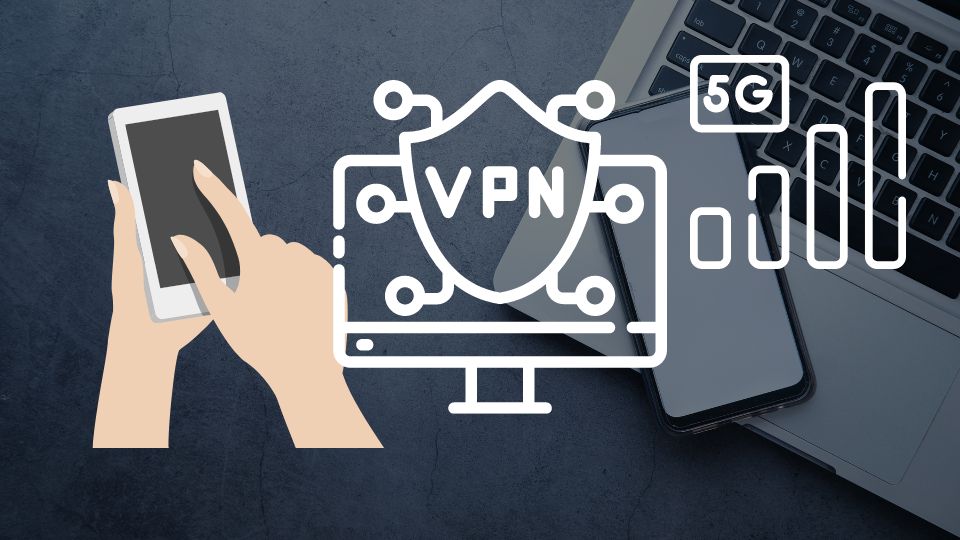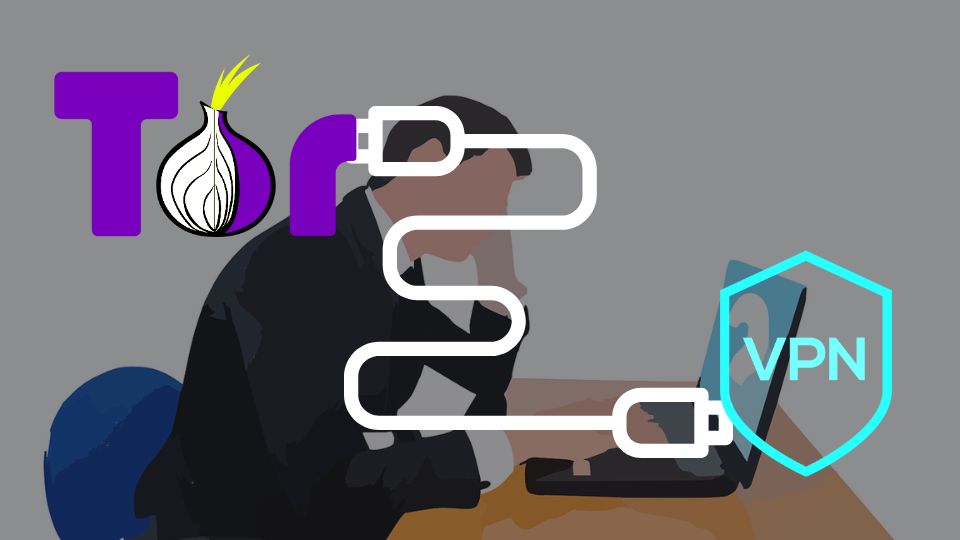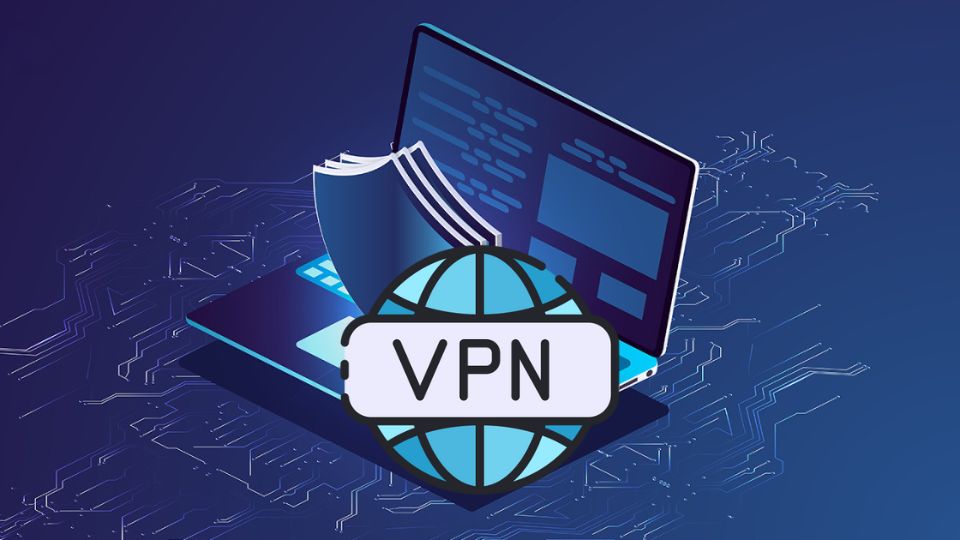This post may contain affiliate links. As an affiliate, we earn from qualifying purchases. We get commissions for purchases made through links in this post.
Virtual private networks (VPNs) have grown in popularity in recent years, offering users a secure and private Internet connection. Many users still wonder whether VPNs work on mobile data as well as Wi-Fi. The answer is yes, VPN does work on mobile data and provides the same level of security and privacy as it does on Wi-Fi networks.
When a person connects to a VPN on their mobile device, their traffic is encrypted, making it a lot harder for third parties to spy on what they do on the internet. This means that a VPN can help ensure user privacy and security even when utilizing mobile data. However, because data needs to be encrypted and decrypted before being transmitted, using a VPN may result in slower Internet speeds.
Despite the potential for slower speeds, using a VPN on mobile data can be an effective way to protect sensitive information and stay secure. Whether a user is browsing the web, checking email, or accessing sensitive financial information, a VPN can help to ensure that their data remains private and secure.
VPN on mobile data: Does It Work?
Mobile devices have become a vital part of our daily lives in an increasingly connected society. We rely on our smartphones and tablets for a wide range of activities, from browsing the web to accessing sensitive information. However, the simplicity of using mobile data presents privacy and security problems. This is where a mobile VPN comes in. In the following sections, we will learn whether VPN works on mobile data and what the benefits of using a mobile VPN app are.
What Is a Mobile VPN?
A mobile VPN is a virtual private network that allows users to securely connect to the Internet through their mobile devices. It works by creating an encrypted tunnel between the user’s device and a VPN server, which routes all Internet traffic through the VPN server. This process ensures that the user’s online activity is protected from prying eyes and potential security threats. To allow using a VPN on your smartphone, you usually need to install a VPN app from your Android or iOS apps store.
Does a VPN work on mobile data?
Yes, a VPN works on mobile data just like it does on Wi-Fi. Once a user connects to a VPN server through a VPN provider’s mobile app, their network traffic becomes encrypted. This encryption prevents the user’s mobile carrier or other third parties from spying on their online activity.
Benefits of using a VPN on mobile data
Using a VPN on mobile data offers several benefits, including:
- Added Security: A VPN provides an additional layer of security, protecting sensitive data and online activity from snooping and potential security threats.
- Bypassing Censorship: A VPN allows users to bypass censorship and access blocked websites and content.
- Avoiding Bandwidth Throttling: ISPs may throttle bandwidth for certain types of Internet traffic. A VPN can help users avoid bandwidth throttling and enjoy faster Internet speeds.
- Accessing Geo-Restricted Content: A VPN allows users to access geo-restricted content from anywhere in the world.
While using a VPN on mobile data may have some drawbacks, such as increased data consumption and encryption overhead, the benefits far outweigh the risks.
In conclusion, a VPN works on mobile data just like it does on Wi-Fi, providing users with added security, bypassing censorship, and protecting online activity. With the right VPN protocol, users can enjoy fast Internet speeds and access geo-restricted content from anywhere in the world.
How to use a VPN on mobile data
Using a VPN on mobile data is a great way to protect your online privacy and security while on the go. Here’s a step-by-step guide to setting up a VPN on your smartphone, as well as some troubleshooting tips for common issues.
Step-by-Step guide to setting up a VPN on a smartphone
- Choose a VPN provider: There are many VPN providers available, such as NordVPN and ExpressVPN, that offer mobile apps for both Android and iOS devices.
- Download and install the VPN app: Once you’ve chosen a VPN provider, download and install their mobile app from the Google Play Store or Apple App Store.
- Sign up for an account: After installing the app, sign up for an account with your chosen VPN provider. You’ll need to provide some personal information and payment details to complete the signup process.
- Connect to a VPN server: Once you’ve signed up and logged in to the VPN app, select a server location to connect to. From now on, your traffic is encrypted and your online activity is protected.
Troubleshooting common issues with VPN on mobile data
If you’re having trouble using a VPN on mobile data, here are some common issues and troubleshooting tips:
- Connection issues: If you’re having trouble connecting to a VPN server, try switching to a different server location or check if your mobile data is on.
- Slow speeds: Using a VPN can sometimes slow down your Internet speeds, especially on mobile data. Try connecting to a different server that is closer to you and/or less loaded.
- Battery drain: Using a VPN can also drain your phone’s battery faster. Try turning off the VPN when you’re not using it to conserve battery life.
Overall, using a VPN on mobile data is a great way to protect your online privacy and security while on the go. Just make sure to choose a reputable VPN provider and follow the steps above to set it up properly.
Choosing the right VPN for mobile data
When choosing a VPN for mobile data, there are several factors to consider. The right VPN should provide fast and stable connections, strong encryption, and reliable servers. Here are some factors to consider when choosing a VPN for mobile data:
Factors to consider when choosing a VPN for mobile data
- VPN protocol: The VPN protocol used by the provider is important because it determines the level of encryption and speed. Some popular VPN protocols include PPTP, L2TP/IPSec, IKEv2/IPSec, OpenVPN, and WireGuard. OpenVPN is generally considered the most secure and reliable protocol.
- Data usage: Some VPNs have data caps(usually free VPNs), which can be problematic if you use a lot of data. Look for a VPN that offers unlimited data usage or at least a generous data cap.
- Cost: VPNs can vary in price, so it’s important to find one that fits your budget. However, don’t sacrifice quality for the price. A cheap VPN may not offer the same level of security and privacy as a more expensive one.
- Server locations: The more server locations a VPN has, the better. This is especially important if you travel frequently or need to access content that is restricted in certain regions.
- Logging policy: Look for a VPN that has a zero-logging policy. This means that the provider does not keep any logs of your online activity, providing an added layer of privacy and security.
Recommended VPNs for smartphones
Here are some VPNs that are recommended for mobile phones:
- NordVPN: NordVPN is a popular VPN that offers fast and reliable connections, strong encryption, and a no-logging policy. It has a large network of servers in over 60 countries and is compatible with all major platforms.
- ExpressVPN: ExpressVPN is another popular VPN that offers fast and stable connections, strong encryption, and a no-logging policy. It has a large network of servers in over 90 countries and is compatible with all major platforms.
Choosing the right VPN for mobile data is important for maintaining online privacy and security. Consider factors such as VPN protocol, data usage, cost, server locations, and logging policy when choosing a VPN. NordVPN and ExpressVPN are all good options for mobile phones.
Conclusion
To conclude, VPNs are an effective tool for protecting mobile data and keeping online privacy. Most smartphones support VPN apps, making it possible to use a virtual private network over mobile data. Mobile data is not a distinct form of the Internet, but simply another method of transmitting data, comparable to Wi-Fi.
By using a VPN on mobile devices, users can encrypt their network traffic and prevent their mobile carrier or other third parties from spying on their online activity. This is especially important when using online banking, healthcare apps, or sending a private email.
While VPNs can somewhat slow down Internet speeds, they provide much more benefits that outweigh their drawbacks. By choosing a reliable VPN provider and following best practices for maximizing mobile data security, users can enjoy the benefits of a secure and private online experience on their mobile devices.
Overall, VPNs are an essential tool for anyone who values online privacy and security, and they are just as effective on mobile data as they are on Wi-Fi connection.



